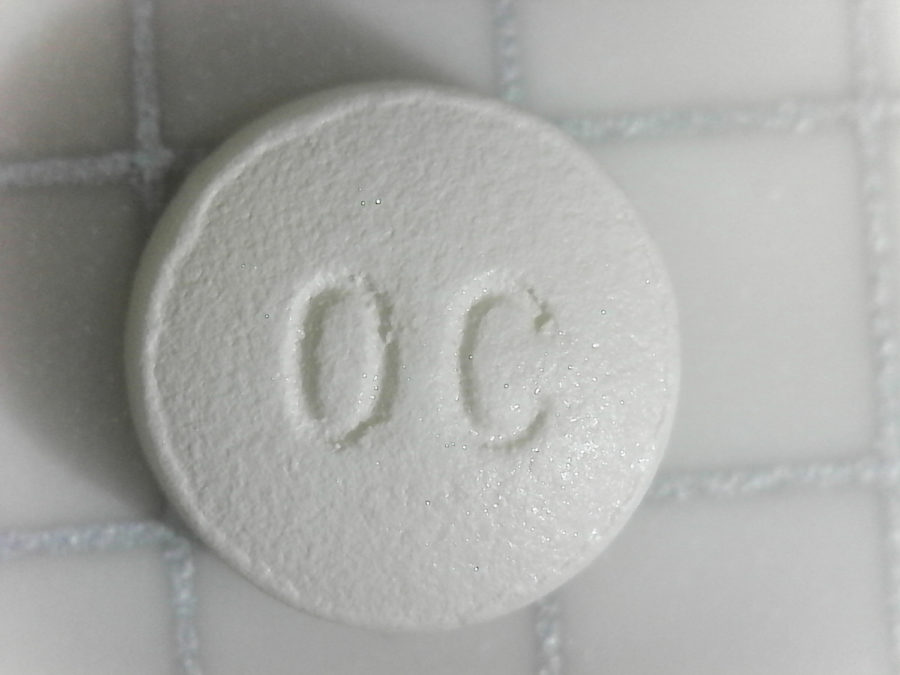Editorial: Big Pharma must be stopped
A 10-milligram tablet of OxyContin-branded oxycodone.
February 5, 2019
For the first time in U.S. history, the odds that you will die of an opioid overdose are greater than the odds you will die in a motor vehicle accident — 1 in 96 as opposed to 1 in 103, respectively, according to an analysis by the National Safety Council.
Then-redacted portions of Massachusetts’ civil complaint against Purdue Pharma revealed on Thursday that one company — and the one family that runs it — may be responsible for illegal activities that expanded and considerably worsened the opioid crisis, and it may also have tried to make a profit on addiction-treatment drugs. This kind of shameful opportunism must be stopped if we’re to have any chance at stopping a national health emergency of this magnitude.
The civil suit reveals that the Sackler family, which owns the company that produces the highly addictive painkiller OxyContin, fought for higher doses of the drug, deceived doctors as to the severity of the drug’s addictive properties and blamed patients for its abuse. In return for its less-than-savory tactics, Purdue Pharma made more than $4 billion between 2008 and 2016 and drastically worsened the opioid crisis in America by peddling false information and downplaying the dangers of OxyContin.
But that’s not all. The court documents also exposed a secret project, code-named Project Tango, involving company executives and the daughter of one of its owners. The project’s goal was to tap into the growing industry of addiction treatment drugs to increase profits. Purdue Pharma would use the epidemic it was largely responsible for creating as a market to sell more drugs to combat addiction.
Ultimately, it wanted to become an “end-to-end pain provider.” Purdue Pharma illustrated this plan with a graphic of a dark hole of pain treatment by opioids that led to opioid addiction treatment, which required even more drugs. The company was supposed to be a one-stop shopping experience in which it sold you the problem and its problematic solution.
To capitalize on a horrible situation of its own creation is despicable and not always easy to combat. Purdue Pharma is a powerful machine that has been spreading false information about OxyContin since it released the drug in 1996. Stymieing the outbreak of opioid-related deaths will require approaches from many angles.
Taking companies like Purdue Pharma to court over illicit activities is a good start to fighting misinformation. It also falls on health-care professionals to learn which medications are appropriate for which situations and in what dosages. Overprescription due to the encouragement of pharmaceutical companies is a big reason people become addicted to painkillers like OxyContin.
Responsibility also falls on patients, who must ask questions when their health-care providers prescribes painkillers, and communities, which need to be able to support those struggling with addiction.
Unfortunately, none of these things will beat down the pharmaceutical industry, but they might be able to check the spread of misinformation by companies like Purdue Pharma. An educated view of opioids is necessary to prevent even higher odds of death by overdose and could help stop the efforts of those willing to take advantage of people suffering.








